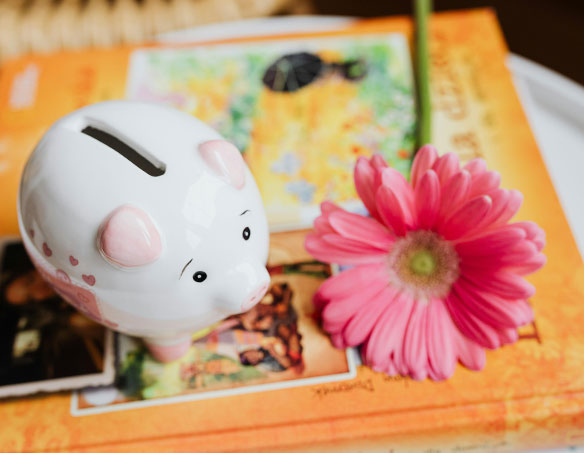How to establish credit for the first time
Register to vote
Registering to vote is a quick and easy way to give your credit report a boost.
As well as checking your reliability in paying back credit, lenders will also have to verify your identity. By being on the electoral roll your identity can be easily verified as this is linked to your credit file. Just ensure that the address you register to vote at matches that on your credit application.
Open a bank account
Opening a bank account again proves that you are a UK resident but also shows you have a reliable relationship with your bank and that you can manage money/pay your bills on time.
If you are a student or graduate, there are specialist accounts that can help you build your credit score. These accounts often feature a 0% overdraft giving you a gateway into the world of credit. It is vital that if you get one of these accounts, you manage it well. Leave your overdraft for a rainy day or emergency and be sure to pay it off as soon as possible. Continually going into your overdraft and not managing your money well will show the bank and other lenders that you are not responsible with money and could negatively affect your credit score. In addition, an overdraft is a form of loan and will need to be repaid, the lower you keep this amount (preferably zero) the less you will have to pay back.
Use a credit card
Using a credit card has long since been a popular way to boost your credit score. However, using a credit card must be done responsibly to avoid having the opposite effect.
Ideally, you should start with a smaller credit limit and spend roughly 30% less than this on your credit card each month. You should then pay this balance off in full and on time. If you do this, you will gradually build up your credit file over time. Remember, only use your credit card to pay for items you already have the funds for to avoid spending beyond your means and racking up large credit card bills.
Check your eligibility for credit
If you apply for credit and then get rejected, this can leave a negative mark on your credit file. This is because too many searches for credit can make you look desperate for funds and therefore irresponsible with money.
The Money Saving Expert has a handy guide which allows you to see which credit cards you will most likely be accepted for without impacting your credit score.
Take out a mobile phone contract
Setting up regular direct debits to authorised companies can be one way to show you are responsible with your money. Of course, direct debits can be unaffordable and you shouldn’t take out any unnecessary direct debits that will lead you to spend beyond your means. A mobile phone contract can be a good starter direct debit to help you build up your credit rating and prove you can make regular payments on time.
Don’t miss payments
It may go without saying but missing payments on your direct debits or credit card bills will negatively affect your credit score. Therefore, be sure to make all payments accurately and on time as one or two missed payments when you are younger can affect you for years to come.
Check your credit score
Last but certainly not least, check your credit score regularly. As the saying goes, ‘the more you know’ and this is true with your credit file!
By checking your credit score regularly you can firstly ensure all details are correct on it and correct any inaccuracies. Likewise, you can watch how your credit score improves over time – something that can be quite satisfying and encourage you to keep making responsible financial decisions.
For more information on your credit score read our guide on credit reports here.


